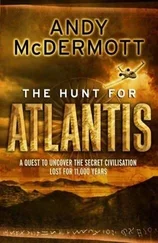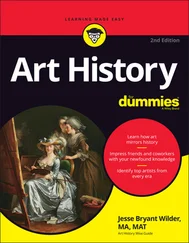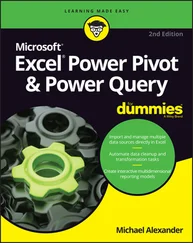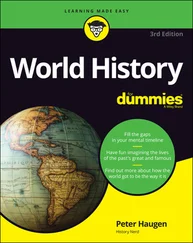417 422
418 423
419 424
420 425
421 426
422 427
423 428
424 429
425 430
426 431
427 432
428 433
429 434
430 435
431 436
432 437
433 438
434 439
435 440
436 441
437 442
438 443
439 444
440 445
441 446
442 447
443 448
444 449
445 450
446 451
447 452
448 453
449 454
450 455
451 456
452 457
453 458
454 459
455 460
456 461
457 462
458 463
459 464
460 465
461 466
462 467
463 468
464 469
465 470
466 471
467 472
468 473
469 474
470 475
471 476
472 477
473 478
474 479
475 480
476 481
Over the past 20 years, I’ve taught history, studied history, written history, talked and listened about it with all sorts of different people, learning all the time. What’s struck, and stayed with me through this whole time, is just how big the for good history is. And good history, in my own frankly biased opinion, generally involves helping people answer some of the really compelling questions. Questions like, who are we, really? (And, sure, are we even a ‘we’?) And how did we come to be as we are now, today? History can be as small as what’s happened over a few decades on one neighbourhood street, but no matter how small its immediate subject matter, if it’s good history, it can’t help but relate back some sort of answer for the big questions too. The reason there’s a history profession at all is because there’s enough folks who want to know the answers to these questions, and want their kids to know, and their friends, relations and various others to think and ask these questions too.
Now, obviously there is no one final, finished ultimate set of answers to these questions. That’s the beauty of history for me — with every year and decade that passes, from one generation to the next, our view of the past changes. In this sense I like to think of history as one great big ongoing conversation between the past and the present. And the conversation keeps changing and evolving and shifting as the society it’s in keeps changing with it. At the heart of this changing, ever-shifting conversation though, is the need in us to tell each other the basic story, as clearly and as well as possible. And providing that story is what this book is all about.
At first glance, Australian history appears to be nice and neat and compartmentalised, doesn’t it? There it is, most of it fitting into the last 230+ years (aside, of course, from the 50,000 years or more of Indigenous Australian history that preceded it, but we’ll get to that). So it can be positively weird just how often bits of it get sliced, diced and served up as completely different dishes. ‘First contact’ history gets separated out from Gallipoli, say; the conscription controversy of World War I and the Vietnam War might get placed in separate boxes; convicts are set aside from the rise of colonial towns and cities; and it’s all completely separate from the Great Depression. From the Tent Embassy and Gough Whitlam’s ‘It’s Time!’ election win in 1972, to John Howard, Julia Gillard, Asylum seekers, Carbon tax and Same Sex Marriage since the 2000s.
Okay, this separation isn’t always a bad thing — they’re all good topics worthy of being teased apart in isolation. But it can be useful — not to mention interesting! — to also have them available to a reader in one easily accessible, easily readable volume, and this is where the For Dummies books shine.
You might want to read the whole of Australian history from go to whoa — from first Indigenous arrivals to practically just last week. With this book, you can do that. Or, this month, you might want to find out what caused separate, self-sufficient colonies to federate into a nation but, next month, be wondering exactly how a supposed convict hellhole managed to create a ‘workingman’s paradise’ within 70 years of first settlement. You can dip, you can skip, you can cross-reference — jump from one item to another as you see fit. The book is designed to work the way you want it to.
In writing the book, I’ve been making some assumptions about what you as a reader might be bringing to the book. I’ve been assuming that you want to know more about Australian history, and that some or all of the following might apply to you:
You might have done some Australian history at school, but in a hodgepodge sort of way. At different points of your schooling, you might have bumped into convicts, bushrangers, Gallipoli and other different topics. These interested you at the time but you weren’t quite sure how they all fitted together, and what else there was to know about.
Alternatively, you might have hated history at school and tried to ignore it as much as possible. But you’ve always suspected that the actual history of the place might be a darn sight more interesting than what school history did to it, and wondered what that history might look like.
You might be entirely new to Australia and keen to get inside the head of the country, and understand what makes the place tick, and how it came to be this way.
I’ve also used a few conventions in this book to make the information easy to get to and understand:
Italics for terms or words that might not be immediately understandable (and I follow the italics up with an explanation in brackets like this one).
Sidebars for things that are interesting in their own right but are a little removed from the main point.
The spelling of ‘Labor’ for the Australian Labor Party. Officially, the spelling was standardised by the party in 1912 to be Labor rather than Labour (although plenty of newspapers ignored this and kept spelling it the old way until after World War II ended in 1945). To make it simpler, I’ve spelt it the same way — ‘Labor’ — all the way through.
The description of the main non-Labor political party as ‘Liberal’ for pretty much all of the 20th century. Even though the final reorganisation of the party into the Liberal Party we know today only happened in 1944, a non-Labor party acted like the Liberal Party, and really was the Liberal party, and sometimes even called itself the Liberal Party, ever since Alfred Deakin got the various liberal forces together under the one banner in 1909. Rather than change the name to reflect the various name-changes they went through over the next 30-odd years (which they did with irritating frequency), I’ve just chosen to call the lot of them Liberals and be done with it.
Along with the parts, the chapters and the sections in this book, something else should make your navigating through it a whole lot easier: Different icons placed at different points in the margin of the text to highlight some key things. I’ve used the following icons:
 The main events, decisions and actions in a country’s history don’t usually just happen — you can often dig up their causes and influences from the past. When I’ve done this for events in this book, I’ve labelled the information with a ‘Historical Roots’ icon.
The main events, decisions and actions in a country’s history don’t usually just happen — you can often dig up their causes and influences from the past. When I’ve done this for events in this book, I’ve labelled the information with a ‘Historical Roots’ icon.
 This icon, I confess, is a special favourite of mine. These are the moments in the book where I get to hand over the metaphorical microphone to the people who made Australia’s history and give them the chance to explain what they thought they were doing — or to contemporary commentators, to explain what Australia was thinking when these events happened. For all the explaining that an historian does (and I promise you I’ve tried to make it as clear and to the point as I possibly can) sometimes there’s just no substitute for getting the actual protagonists or observers to have their say on what was going on. When they do, it carries this icon next to it.
This icon, I confess, is a special favourite of mine. These are the moments in the book where I get to hand over the metaphorical microphone to the people who made Australia’s history and give them the chance to explain what they thought they were doing — or to contemporary commentators, to explain what Australia was thinking when these events happened. For all the explaining that an historian does (and I promise you I’ve tried to make it as clear and to the point as I possibly can) sometimes there’s just no substitute for getting the actual protagonists or observers to have their say on what was going on. When they do, it carries this icon next to it.
Читать дальше
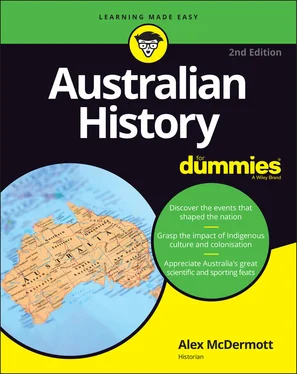
 The main events, decisions and actions in a country’s history don’t usually just happen — you can often dig up their causes and influences from the past. When I’ve done this for events in this book, I’ve labelled the information with a ‘Historical Roots’ icon.
The main events, decisions and actions in a country’s history don’t usually just happen — you can often dig up their causes and influences from the past. When I’ve done this for events in this book, I’ve labelled the information with a ‘Historical Roots’ icon. This icon, I confess, is a special favourite of mine. These are the moments in the book where I get to hand over the metaphorical microphone to the people who made Australia’s history and give them the chance to explain what they thought they were doing — or to contemporary commentators, to explain what Australia was thinking when these events happened. For all the explaining that an historian does (and I promise you I’ve tried to make it as clear and to the point as I possibly can) sometimes there’s just no substitute for getting the actual protagonists or observers to have their say on what was going on. When they do, it carries this icon next to it.
This icon, I confess, is a special favourite of mine. These are the moments in the book where I get to hand over the metaphorical microphone to the people who made Australia’s history and give them the chance to explain what they thought they were doing — or to contemporary commentators, to explain what Australia was thinking when these events happened. For all the explaining that an historian does (and I promise you I’ve tried to make it as clear and to the point as I possibly can) sometimes there’s just no substitute for getting the actual protagonists or observers to have their say on what was going on. When they do, it carries this icon next to it.